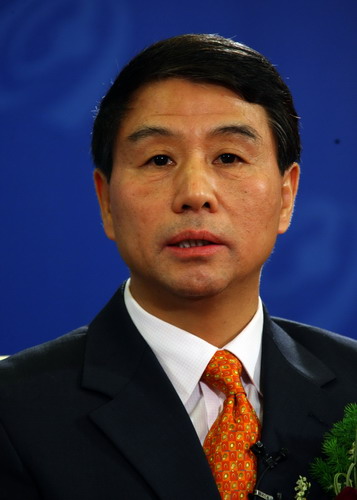China-Japan-ROK free trade talks 'set for 2012'
Free trade agreement (FTA) talks among China, Japan and the Republic of Korea (ROK) could start in 2012 as the countries try to reduce reliance on the United States and the European Union, Yi Xiaozhun, vice-minister of commerce, told China Daily.
US economic woes and the European debt crisis are boosting integration efforts and adding momentum to negotiations for an FTA among the three countries.
"I expect the negotiations to start in 2012, when a joint study by the three nations will be concluded," Yi said on the sidelines of a meeting of the FTA Joint Study Committee in Weihai, a coastal city in Shandong province.
China and the ROK are expected to start FTA talks next year, according to earlier media reports.
 |
|
Yi Xiaozhun, vice-minister of commerce |
Yi Xiaozhun, vice-minister of commerce, says an FTA among China, Japan and the ROK will benefi t all.
"The FTAs ... among the three nations will contribute to the integration of East Asian economies," Yi said.
The three countries make up about 22 percent of the global population, and their combined economies account for 19 percent of the world total and their foreign reserves 47 percent.
"The FTA will be the third largest after the European Union and the North American Free Trade Agreement," said Zhang Xiaoji, a senior researcher with the State Council's Development Research Center and a member of the Joint Study Committee.
China has so far signed eight FTAs and is in discussions on five more, according to the Ministry of Commerce.
The first two committee meetings were held in Japan in May and the ROK in September.
"The financial crisis has made us aware of the huge risks if we continuously bet on the US and the EU to spur exports. So, a regional FTA that could help boost the foreign trade and investment of the three nations, and reduce reliance on Western markets, is a way out," Yi said.
As chill economic winds buffet the US and Europe, Chinese exporters have fallen victim to protectionism. In the past two years, the US launched an unprecedented number of investigations into Chinese exports, and during the past 10 months cases the EU has initiated against China were worth more than five times those in the whole of 2009, according to the Ministry of Commerce.
The research center's Zhang said the FTA, if implemented, will have a "far-reaching" impact on the global economy.
Trade among the three nations still accounts for less than 20 percent of their total foreign trade, and their outbound investment in each other is only 6 percent of their total worldwide.
"That leaves plenty of room for the three nations to expand trade and investment," said Yi.
Takehiro Kagawa, deputy director-general of the Economic Affairs Bureau of Japan's Foreign Ministry, said the trilateral FTA could be "an important cornerstone for realizing integration".
The roots of the proposed FTA talks go back to October 2009, when leaders from China, Japan and the ROK agreed to launch a joint study with a completion date for 2012.
While emphasizing the importance of an FTA, Yi also admitted that there are "hard nuts" to crack during the negotiations.
"The agriculture sector is sensitive for Japanese and Korean counterparts, but the opening of industrial sectors including steel, chemicals and the auto industry will affect Chinese industry," he said.
"However, we are confident that we can tackle all the problems step by step," Yi said.
The ROK's Lee Yun-young, deputy director-general for FTA Policy, Ministry of Foreign Affairs and Trade, agreed.
"There are sensitive issues, but we will try to keep a balance of interests for all," he said.
Although all sides called for a conclusion of the nine-year Doha Round talks, aimed at lowering global trade barriers, prospects for Doha are uncertain, which has led to growing Asian interest in possible free trade agreements.
Japan has signed an FTA with the Association of Southeast Asian Nations and is close to one with India, while the ROK has signed an FTA with the EU and is still in negotiation with the US.
 0
0 






